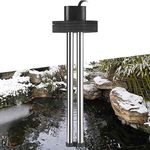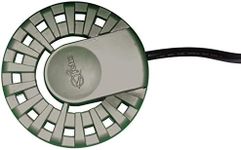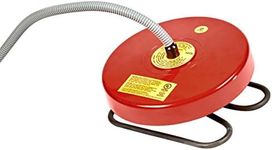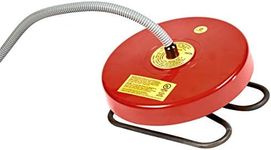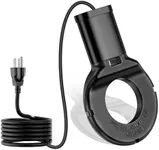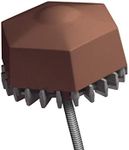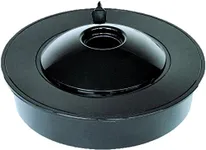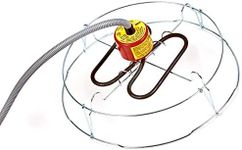Buying Guide for the Best Pond Heaters
Choosing the right pond heater is essential to maintaining a healthy environment for your pond's aquatic life, especially during colder months. A pond heater helps to prevent the water from freezing, ensuring that your fish and plants remain safe and healthy. When selecting a pond heater, it's important to consider several key specifications to ensure you get the best fit for your needs. Understanding these specifications will help you make an informed decision and keep your pond in optimal condition year-round.WattageWattage refers to the power output of the pond heater and is crucial because it determines how effectively the heater can warm the water. Higher wattage heaters can heat larger volumes of water or maintain higher temperatures in colder climates. For small ponds, a heater with lower wattage (100-300 watts) may suffice, while larger ponds may require heaters with higher wattage (500-1500 watts). Consider the size of your pond and the typical winter temperatures in your area to choose the appropriate wattage.
Thermostat ControlA thermostat control allows you to set and maintain a specific temperature in your pond, which is important for the well-being of your aquatic life. Heaters with built-in thermostats can automatically turn on and off to maintain the desired temperature, providing convenience and energy efficiency. If you live in an area with fluctuating temperatures, a heater with a reliable thermostat control is essential to prevent overheating or underheating your pond.
Submersible vs. FloatingPond heaters come in two main types: submersible and floating. Submersible heaters are placed underwater and are ideal for deeper ponds, as they can evenly distribute heat throughout the water. Floating heaters, on the other hand, rest on the surface and are better suited for preventing ice formation on the pond's surface. Choose a submersible heater if you need to heat the entire pond, or a floating heater if your primary concern is keeping a hole in the ice for gas exchange.
Material and DurabilityThe material and durability of the pond heater are important for ensuring it can withstand harsh weather conditions and prolonged use. Heaters made from stainless steel or other corrosion-resistant materials are ideal for long-term use, as they are less likely to rust or degrade. Consider the environmental conditions your heater will face and choose a model that is built to last, especially if you live in an area with severe winters.
Safety FeaturesSafety features such as automatic shut-off, overheat protection, and grounded plugs are important to prevent accidents and ensure the safe operation of your pond heater. Automatic shut-off and overheat protection can prevent the heater from running continuously or overheating, which can be dangerous for both the heater and your pond's inhabitants. Grounded plugs reduce the risk of electrical hazards. Prioritize heaters with these safety features to protect both your pond and your home.
Energy EfficiencyEnergy efficiency is a key consideration for minimizing the operating costs of your pond heater. Heaters with higher energy efficiency will use less electricity to maintain the desired temperature, which can result in significant savings over time. Look for heaters with energy-saving features such as adjustable thermostats and automatic shut-off. If you are concerned about energy consumption, choose a heater that balances performance with efficiency to keep your pond warm without driving up your energy bills.
